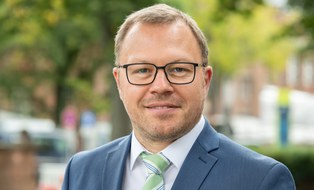Holder
 © TU Dresden
© TU Dresden
Prof. Dr. Matthias Mauder
Send encrypted email via the SecureMail portal (for TUD external users only).
2021- Chair of Meteorology, TUD Dresden University of Technology, Germany
2012-2021 Head of the group on Transport Processes in the Atmospheric Boundary Layer, Karlsruhe Institute of Technology, Garmisch-Partenkirchen, Germany
2012-2018 Head of Helmholtz Young Investigator Group "Capturing all relevant scales of biosphere-atmosphere exchange - the enigmatic energy balance closure problem", Karlsruhe Institute of Technology, Garmisch-Partenkirchen, Germany
2009-2012 Senior Scientist, Karlsruhe Institute of Technology, Institute of Meteorology and Climate Research – Atmospheric Environmental Research, Garmisch-Partenkirchen, Germany
2006-2009 Post-doctoral Fellow in Canadian Government Laboratories, Agriculture and Agri-Food Canada Ottawa Research and Development Centre, Ottawa, Canada
2002-2006 Dr. rer. nat. (PhD equivalent), Faculty of Biology, Chemistry, and Earth Sciences, University of Bayreuth, Germany
1997-2002 Diplom Geo-ecology (MSc equivalent), University of Bayreuth
For me, the greatest challenge of our time is global climate change in combination with the ongoing trend of urbanization. I am convinced that understanding ecological processes as accurately as possible is the basis for a sustainable approach towards our natural environment. This is not easy to achieve because our planet Earth is a complex system, and the relevant processes are often non-linear or even chaotic. In particular, the interactions at the land surface play a crucial role in the Earth's climate system, as this represents the main interface between its compartments, the atmosphere, biosphere, hydrosphere, pedosphere, and anthroposphere. One major objective of my research is to inform the development of climate adaptation and mitigation strategies on different scales ranging from cities and ecosystems over regions to the national and continental level. To that end, we employ direct measurements fluxes of energy, water and greenhouse gases between the land-surface and atmosphere and conduct numerical simulations of the interactions between the natural and built environment and the atmosphere. This allows us to investigate the potential of nature-based climate solutions and to provide recommendations for action to local authorities and other stakeholders. Due to the complex nature of these challenges, I strongly believe that collaboration and inter- or transdisciplinary research are key-prerequisites to be successful in this field of science.
Keywords: Land-atmosphere interactions, Micrometeorology, Urban climate
- Member of the ICOS-D Scientific Steering Committee
- Member of the Committee on Boundary Layers and Turbulence of the American Meteorological Society
- Member of the Editorial Board of Boundary-Layer Meteorology
- Member of the Editorial Board of Agricultural and Forest Meteorology
- Academic Editor for PLOS ONE
